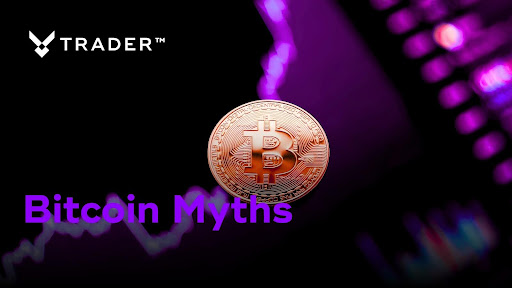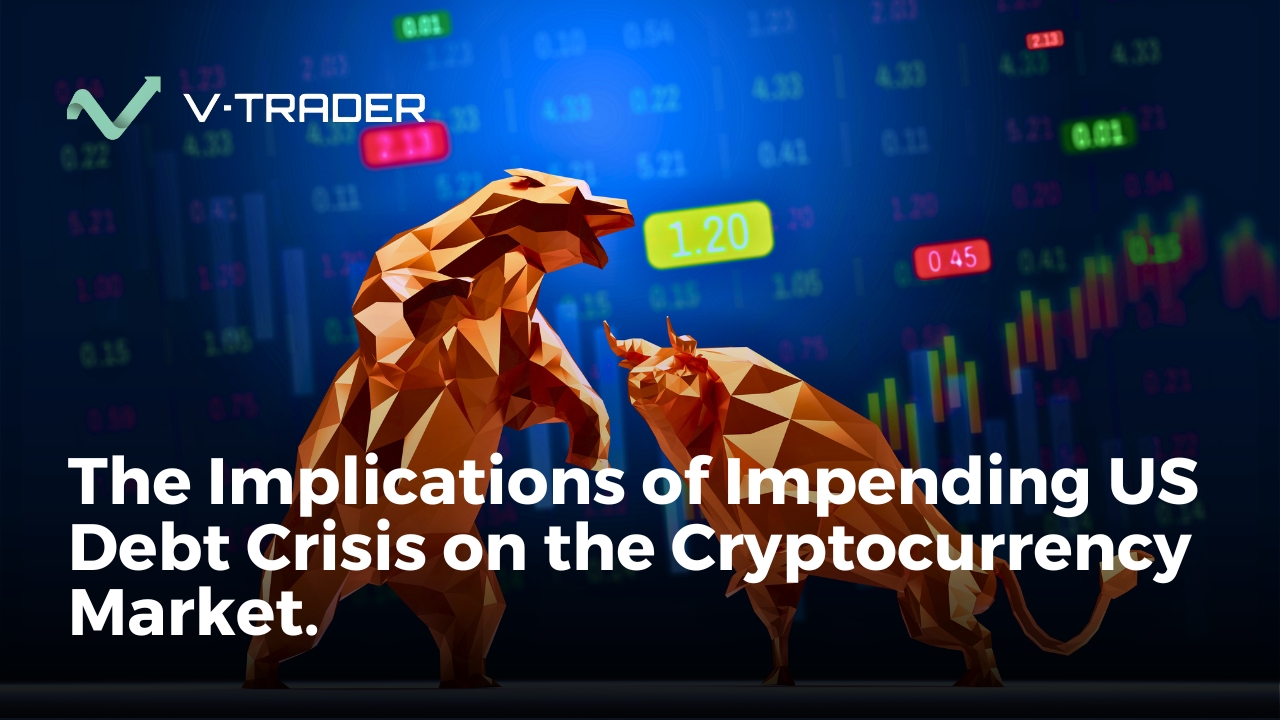Bitcoin Myths: What Every Trader Should Really Know and Why This Matters
This guide is part of the “Guide to Bitcoin” series.
Let’s be honest—Bitcoin’s reputation has been through it. Headlines love to label it “risky,” “criminal,” or just plain confusing. Let me give you a statistic that may come as a surprise: only 0.34% of Bitcoin transactions were linked to illegal activity in 2023. I guess that makes it not quite the underworld currency some folks have been making it out to be. Now fast forward to 2025, we have the first world governments stockpiling it as a part of their treasury. If that doesn’t lend to credibility I don’t know what does.
If you’re new to crypto or somewhere in the intermediate trenches, chances are you’ve heard some eyebrow-raising stuff about Bitcoin. Some of it sounds intriguing. Some of it sounds… well, just plain wrong. And those myths? They’re not just harmless chatter—they can actually mess with your trading decisions.
We’re here to clarify myth from facts. Let’s talk about six common Bitcoin myths that are still tripping people up, no matter the range of experience they have trading. Let’s dig into real facts so that you can make sound decisions. We understand that there’s a lot to consider and want to give you some tools to think about while you decide to trade on a platform like ours.
Why These Myths Actually Matter
Bitcoin, launched back in 2009, was the first of its kind—a decentralized digital currency that kicked off a financial revolution. But along with its rise came rumors, misunderstandings, and media-fueled myths. And if you’re figuring out how to buy Bitcoin, those myths can seriously cloud your judgment. So let’s break them down, one by one.
Myth #1: Bitcoin is for Criminals
What People Think:
People keep saying that Bitcoin is stuck in its Silk Road days- quite the comparison in our opinion. People also think that criminals are trading it because it’s “untraceable.”
What’s Actually True:
The thing is, Bitcoin’s blockchain is fully public on a public ledger. Every single transaction is recorded and visible. Law enforcement has also become quite good at using tools and pubic visibility to follow the money trails to suspicious characters and transactions. Chainalysis reported that in 2023, just 0.34% of transactions involved illicit activity. For context, cash is far harder to trace.
Need Proof?
Remember the Colonial Pipeline ransomware hack in 2021? The FBI recovered $2.3 million in Bitcoin. Blockchain sleuthing works.
Myth #2: Bitcoin Has No “Real” Value
The Skeptic’s View:
It’s digital fluff, and not backed by anything- think of it like Monopoly money.
Reality Check:
Bitcoin’s value isn’t made up—it comes from scarcity (only 21 million will ever exist), decentralization, and the growing list of people and businesses using it. In places like Venezuela, it’s literally a lifeline against inflation. Institutions like Galaxy Digital (which managed $2B in crypto assets in early 2024) aren’t playing pretend.
Quote Worth Keeping:
“Bitcoin’s value isn’t in a vault; it’s in its network and trust.” – Nic Carter, Castle Island Ventures.
Myth #3: Bitcoin Is an Environmental Disaster
What You’ve Heard:
Bitcoin mining is cooking the planet.
What’s Missing:
Yes, it uses energy—about as much as Poland in 2024, per Statista. But traditional banking systems use twice as much, according to a 2021 Galaxy Digital report. And the mining industry is shifting toward renewables.
A Real Example:
In Texas, companies like Riot Platforms are using surplus wind and solar energy to mine, helping stabilize the grid while stacking sats.
Myth #4: Bitcoin’s Too Volatile to Be Useful
The Fear:
You can’t use Bitcoin for anything practical because the price swings are insane.
The Reality:
Sure, it was wild back in the day. But things are calming down as the market matures. Institutions like Tesla holding Bitcoin help reduce those wild swings. Plus, stablecoins offer price-stable blockchain payments.
Here’s the Trend:
- 2013: Bitcoin goes from $1 to $1,000.
- 2024: Still volatile, but way more predictable.
- 2025 and beyond: Experts expect smoother price curves as usage grows.
Myth #5: Bitcoin Is Completely Anonymous
What People Assume:
You can do anything with Bitcoin and disappear into the night without consequences.
Here’s the Truth:
Bitcoin is not actually anonymous—it’s pseudonymous. People’s wallets aren’t tied to their real names, however, the blockchain shows every transaction. Tools are used to trace suspicious activity, and are used by law enforcement to pursue characters who are not being compliant or making suspicious transactions.
Recent Example:
A hacker stole $10 million in BTC. He was caught fairly quickly when analysts linked their wallet to a centralized exchange- it’s hard to hide when there’s a public ledger holding you accountable.
Myth #6: Bitcoin is Just a Trend
The Narrative:
It’s a just a fad- the hype doesn’t last
The Facts:
Think again- global governments are investing in it- do we still think it’s dead? Bitcoin has been declared “dead” dozens of times—and yet here we are once again. After its 80% drop in 2018, it bounced back. Every time it comes back, it comes back stronger with a more mainstream following. Countries like El Salvador now use it as legal tender. Companies like MicroStrategy have billions invested. Sure, prices rise and fall, but that’s true of every market.
Quote That Says It Best:
“Bitcoin’s not a bubble; it’s a new asset class.” – Michael Saylor, MicroStrategy CEO.
Here’s the Bottom Line
A lot of these Bitcoin myths have come from outdated information, disgruntled traders who lost it all with volatile and risky trades, or sensational headlines. ,Bitcoin isn’t a sketchy gamble today—it’s a maturing asset with serious real-world utility. It’s really up to the trader to make sound decisions. Our advice? Don’t get caught up in the hype, just look at the facts. They’re all there, pointing at the validity of Bitcoin and it’s future prospects.
TL;DR:
- Illegal? Not really—everything’s traceable.
- Worthless? Nope—scarce, decentralized, and trusted.
- Environmentally bad? Not uniquely so—greener energy use is rising.
- Too volatile? Less and less, especially with stablecoin options.
- Anonymous? Kind of, but not really—transactions are visible.
- Bubble? It’s been tested and keeps bouncing back.
How vTrader Makes It Easy to Get Started
Are you thinking of making your first trade or managing a growing crypto portfolio? vTrader is built to help you trade confidently and with ease. Our tools are user-friendly, our insights are real-time, and our security is rock solid. We’ll give you step-by-step guides, a supportive trader community, and secure platform where you know your money is safe.
Final Thoughts: Are You In?
Bitcoin stopped being hype a while ago, and it’s time to get on board to future proof your portfolio. Now that you have all of the facts, you’re in a much better position to make smart financial moves. Don’t let these myths slow you down. Dive into crypto with vTrader today. Explore our tools, and follow us for updates. Got questions? We’re all ears—drop them in the comments and let’s chat.

Steve Gregory is a lawyer in the United States who specializes in licensing for cryptocurrency companies and products. Steve began his career as an attorney in 2015 but made the switch to working in cryptocurrency full time shortly after joining the original team at Gemini Trust Company, an early cryptocurrency exchange based in New York City. Steve then joined CEX.io and was able to launch their regulated US-based cryptocurrency. Steve then went on to become the CEO at currency.com when he ran for four years and was able to lead currency.com to being fully acquired in 2025.


